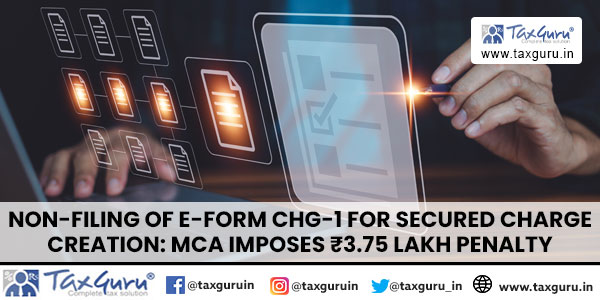Hello readers. Greetings of the season!
As the New Financial Year has arrived, some of us have resolved to indulge in disciplined financial planning in an effort to achieve our financial goals. By means of this article, I aim at helping in the same by offering an insight into the benefits of investing in Mutual Funds and its tax implications.
Let me begin by describing the meaning of a Mutual Fund. It is a financial product that pools money of different individuals and invests on their behalf into various assets such as equity, debt or gold as per the objective of the scheme. Based upon the investor’s financial goals and risk appetite, there are several funds to choose from.
The benefits of investing in Mutual Funds include simplicity, affordability, professional management, diversification and liquidity. Owing to such benefits, Mutual Funds have gained popularity among small investors. It becomes imperative to highlight here that the benefits of investing in Mutual Funds are even greater to large investors who fall in the highest tax bracket, given the tax benefits that investments in Mutual Funds entail.
The Income Tax Act, 1961 offers one major deductions on investment in certain kinds of Mutual Funds.
Equity Linked Savings Scheme:
Under Section 80C of the Act, an amount equal to the investment in Equity Linked Savings Scheme is deductible from the taxable income of an assessee subject to a maximum limit of Rs. 1,50,000/- (such limit is inclusive of other deductions offered under Section 80C, 80CCC and 80CCD). The deduction is available even if the investment is made through the SIP (Systematic Investment Plan) Route which calls for regular investing and higher financial discipline. The investment in ELSS has a minimum lock-in period of 3 years. This is much lower in comparison to other tax saving instruments such as Public Provident Fund (15 years), National Savings Certificate (6 years) and five-year fixed deposits. Like any other Mutual Fund, ELSS are available under dividend and growth schemes. Under dividend scheme, returns are paid to the investor from time to time. Under growth scheme, return is in the form of increased NAV at the end of the lock-in-period.
The limitation of investment in ELSS is that it is based on equity and hence subject to market risk. Further, it has a minimum lock-in-period which does not provide for premature withdrawal.
The table below summarizes Income Tax provisions applicable on distribution of dividend by a Scheme and taxability of income and capital gains in the hands of investors.
| Type of Investor | ||
| Individual/ HUF | Domestic Corporate | |
| Tax Implication on Dividend received by Unit Holders | ||
| Equity Oriented Schemes | Tax Free | Tax Free |
| Other than Equity Oriented Schemes | Tax Free | Tax Free |
| Long-term Capital Gains | ||
| Equity Oriented Schemes* (Units held for more than 12 months) | Nil | Nil |
| Other than Equity Oriented Schemes(Units held for more than 36 months) | 10% without indexation or 20% with indexation whichever is lower + 4% cess | 10% without indexation or 20% with indexation whichever is lower + 4% cess |
| = 10.4% (without indexation) or 20.8% (with indexation)** | = 10.4% (without indexation) or 20.8% (with indexation)** | |
| Short-term Capital Gains | ||
| Equity Oriented Schemes* (Units held for 12 months or less) | 15% + 4% cess | 15% + 4% cess |
| = 15.60%** | = 15.60%** | |
| Other than Equity Oriented Schemes (Units held for 36 months or less) | 30%^ + 4% cess | 30%^ + 4% cess |
| = 31.2%** | = 31.2%** | |
*STT will be deducted on equity oriented schemes at the time of redemption and switch over to the other schemes. Mutual Fund would also pay securities transaction tax wherever applicable on the securities sold.
**Surcharge will be levied according to income of unit holder
^Assuming the investor falls into the highest tax bracket.
From the table, it can be seen that the taxability of returns from Mutual Funds is much lower than the highest tax slab of 31.2% in most cases, which reinforces the fact that Mutual Funds offer great benefits even to large investors.
Further, it can be inferred that investing in equity oriented Mutual Funds gives greater tax benefits in comparison to other Funds. There are certain other benefits as well of investing in equity oriented funds. But before that, it becomes important to highlight the meaning of equity oriented Mutual Funds.
For the purpose of Income Tax, an equity oriented Mutual Fund is the Fund which invests at least 65% of its fund corpus into equity and equity related instruments.
Studies in the past have suggested that equity has delivered higher inflation-adjusted return than any other asset class over the longer horizon. The advantage is even greater when the investment is allowed the benefit of compounding. Compounding has a magical effect in building a corpus if the investor starts early and invests regularly. However, it must be kept in mind that equity funds are preferable for long-term financial goals.
At the same time, the importance of debt funds in managing and de-risking the portfolio should not be ignored.
Though Mutual Funds are a good investment avenue, one must also include other financial instruments in his portfolio to minimize risk and cater to his financial goals adequately.
Note: Please feel free to drop in your suggestions.
Republished with Amendments





























I think in the case of Mutual Funds other than equity oriented funds the period for treating as long term is 36 months. This was the position till last year. Has this been changed?
Sir
I am filing the annual returns of a section 8 company. I have a problem regarding the income from investments, say, mutual funds. The mutual funds have increased in value throughout the year, but no amount has been realized. The bank has sent us the income/loss on such funds at year end. How should a section 8 company book this income, and what is the rate of tax applicable on such income?
Hi sir/madam,
I have invested money in HDFC tax saver – growth mutual funds recently with an amount of 25,500/-. Will it come under 80CCG.
Please reply soon. Thanks in advance.
Good Article. I need some clarifications.
If i invest in debts funds only, i receive dividend after dividend distribution tax paid my the MF. So, the dividends in my hands is totally tax free. Other than this is there any aspect by which i have to pay tax.
Say, I invest in debt funds at NAV and withdraw after a short / longer period. If I receive a higher amount on withdrawal will that difference attract tax? Example: investment in quarterly dividend payout scheme. After considerable period of time, when i withdraw, i may get more than what i invested. Do i have to pay tax on the difference and what are the tax rates?
Tell me wheather in DTC coming from April 2014, ELSS will comtinue or not?
ELSS is a type of Mutual Fund which complies with the Income Tax guidelines and hence qualifies for tax deduction. Majority of its corpus is invested in equity and equity related instruments. It has a lock-in period of 3 years, which is not so in the case of a regular Mutual Fund. Regular Mutual Funds also do not qualify for deduction under the Income Tax Act. There are various ELSS available such as DSP Blackrock Tax Saver Fund, Birla Sun Life Tax Plan, Axis Long-term Equity Fund etc.
Good article and its useful thanks
A very informative article overall.. thanks for your efforts… Could you please explain the difference between ELSS & regular mutual fund with examples?